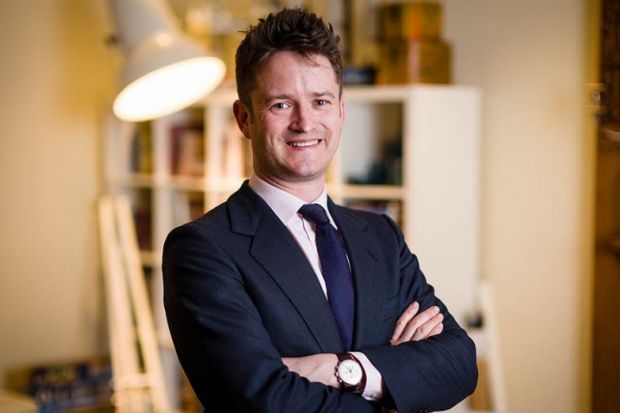A former adviser to three Conservative science ministers has been named the next executive chair of the Economic and Social Research Council.
Stian Westlake, who was policy adviser to Jo Johnson, Sam Gyimah and Chris Skidmore between 2017 and 2019, is expected to take the helm of the £200 million-a-year research funder in late spring after he was selected for the role by Michelle Donelan, the secretary of state for science, innovation and technology.
The appointment of Mr Westlake, who is currently chief executive of the Royal Statistical Society and former policy head at the innovation thinktank Nesta, ends a two-year delay in finding a permanent leader for the ESRC, which has been led by Alison Park on an interim basis since January 2021.
In February 2022, it emerged that the appointment of Jonathan Michie, president of Kellogg College, Oxford, had been vetoed by the business secretary at the time, Kwasi Kwarteng, despite having been previously approved by an independent panel.
It followed claims that Mr Kwarteng had blocked Professor Michie’s candidacy over reports that the economist had once been a member of the Communist Party and had – in 1989 – co-authored a book with Seumas Milne, who was later head of communications for former Labour leader Jeremy Corbyn.
That move and similar delays at other research councils were criticised by Sir John Kingman in 2021 on his departure as the chair of the councils’ umbrella body, UK Research and Innovation (UKRI), stating that the “current government’s intense suspicion of appointments proposals that come through the institutional machine” and its “collective political policing” of candidates had resulted in a slow process that often resulted in “strange, unexplained decisions”.
Mr Westlake, who is co-author of two well-received books, Restarting the Future: How to Fix the Intangible Economy and Capitalism without Capital: The Rise of the Intangible Economy, said it was a “great honour” to be selected to lead the ESRC.
“I firmly believe that rigorous, engaged social science holds the answer to our most pressing challenges – and can change the world for the better,” said Mr Westlake, adding that he looked forward to “working with the research community, with users of research, and with the public to help social science thrive and make its benefits felt widely”.
UKRI chief executive Dame Ottoline Leyser said Mr Westlake brought “a wealth of experience to the role, combined with an impressive track record of ensuring high-quality social and data science is placed at the heart of decision-making”.
“His leadership of and broad engagement with the research, innovation, business and policymaking communities across the UK will be a huge asset in realising UK Research and Innovation’s mission,” Dame Ottoline said.




